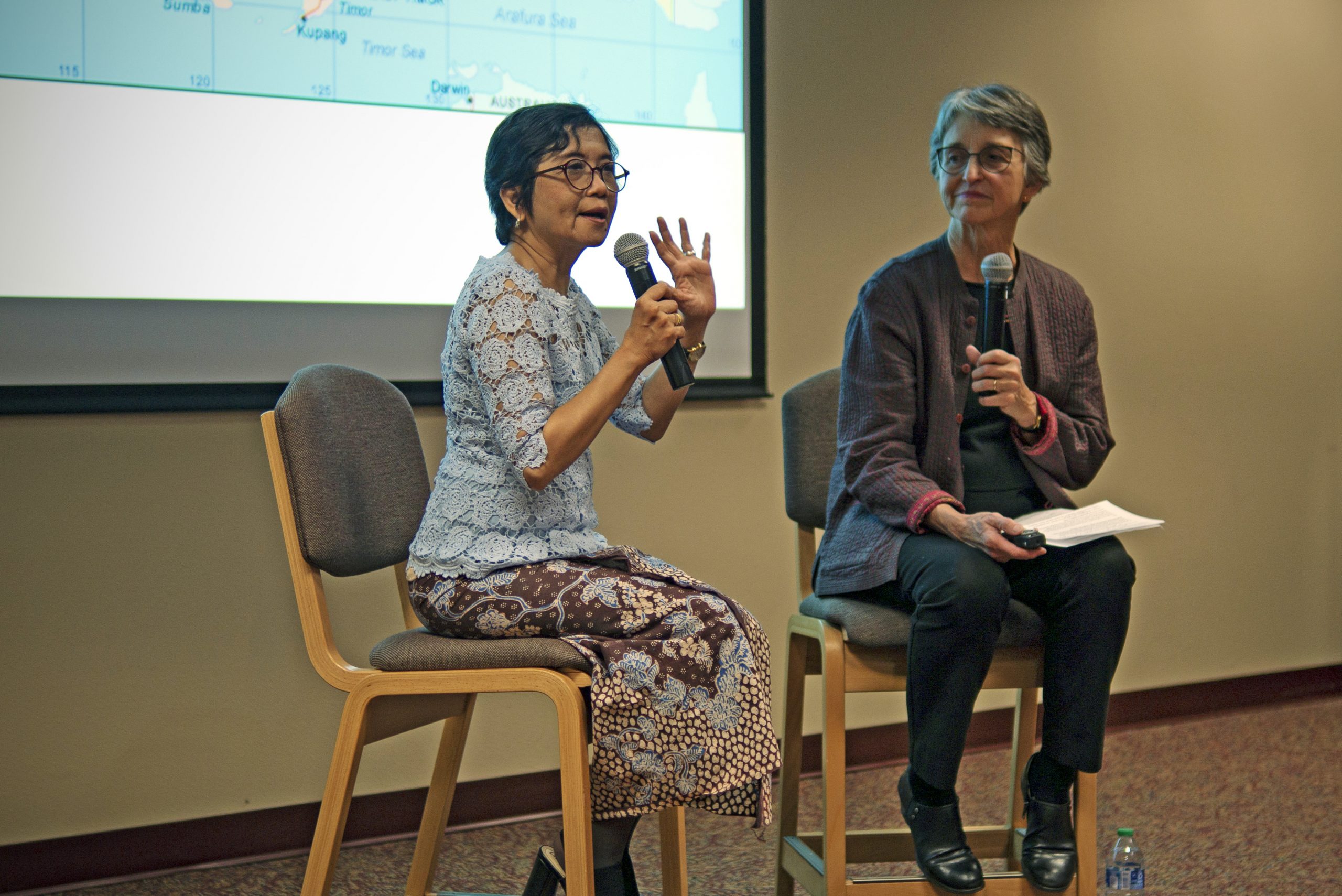Endah Setyowati, a visiting global scholar from Indonesia, spoke Tuesday about living out Goshen College’s core value of compassionate peacemaking in Indonesia as part of the Yoder Public Affairs Lecture series.
At the well-attended event held at College Mennonite Church, Setyowati conversed with Study-Service Term director Jan Bender Shetler, about working on conflict resolution in Indonesia. Shetler guided the conversation with Setyowati before the event was opened up to audience questions.Setyowati grew up in Surabaya in East Java, Indonesia with a unique family background that proved useful for her peacemaking work later in life. Learning from a Christian mother and a Muslim father, she became comfortable from a young age with different religious contexts.
Since much of the conflict in Indonesia is religiously motivated, Setyowati’s strong understandings of both religions allow her to communicate effectively between individuals of both faiths as a “bridging person.”
The beginning of the lecture provided baseline information about Indonesia’s history and politics.
“In 1998, we dethroned the president,” Setyowati explained. “There was violence after that because we turned from a centralized country to a decentralized country of many islands.”
She discussed how Indonesia’s unique geography of many small islands created a vast number of separate cultures and religions that set up a potential for eventual conflict.
Beginning in 1996, Setyowati worked at the Center for Study and Promotion of Peace at Duta Wacana Christian University where she trained religious communities in conflict resolution. The university has been one of Goshen College’s SST partners for many years and also has a number of connections with Mennonite Central Committee.
Setyowati worked to teach peacemaking in the cities of Ambon and Poso, both of which she described as “very high conflict regions.”
Both of these locations required that Setyowati work closely with people outside of her faith because the populations were predominantly Muslim.
Setyowati’s family background became useful while she served in these Muslim areas.
“When they asked to do something like a prayer, I can do both!” she said, explaining how government officials often asked her to say Muslim prayers.
In addition, Setyowati explained how being a woman has impacted her ability to serve and even sometimes been an advantage for her peacemaking work.
“Mostly the teachers in the schools are women, so I tell everyone ‘I’m your teacher,’” she said. “I’m so small so I don’t threaten anyone.”
Although the intense violence in Indonesia has mostly ended, Setyowati’s peacemaking work is far from complete.
“The violence has ended but there is still a trauma,” she observed.
In recent years, Setyowati has been serving as executive director of OHANA Indonesia, a female-led organization focused on the rights of women and children with disabilities.
Setyowati will return to Indonesia next month after living and working on campus as a visiting professor this semester.



